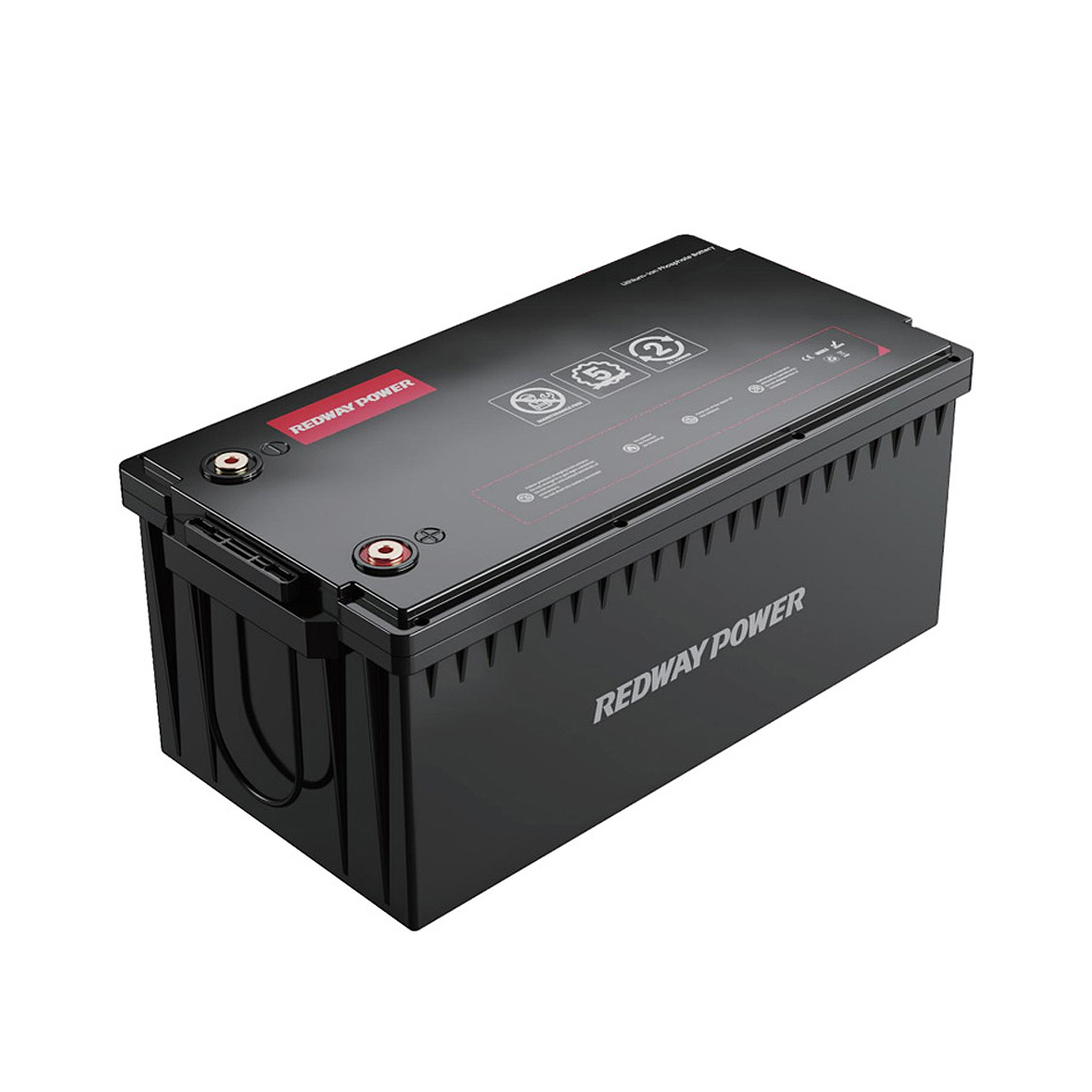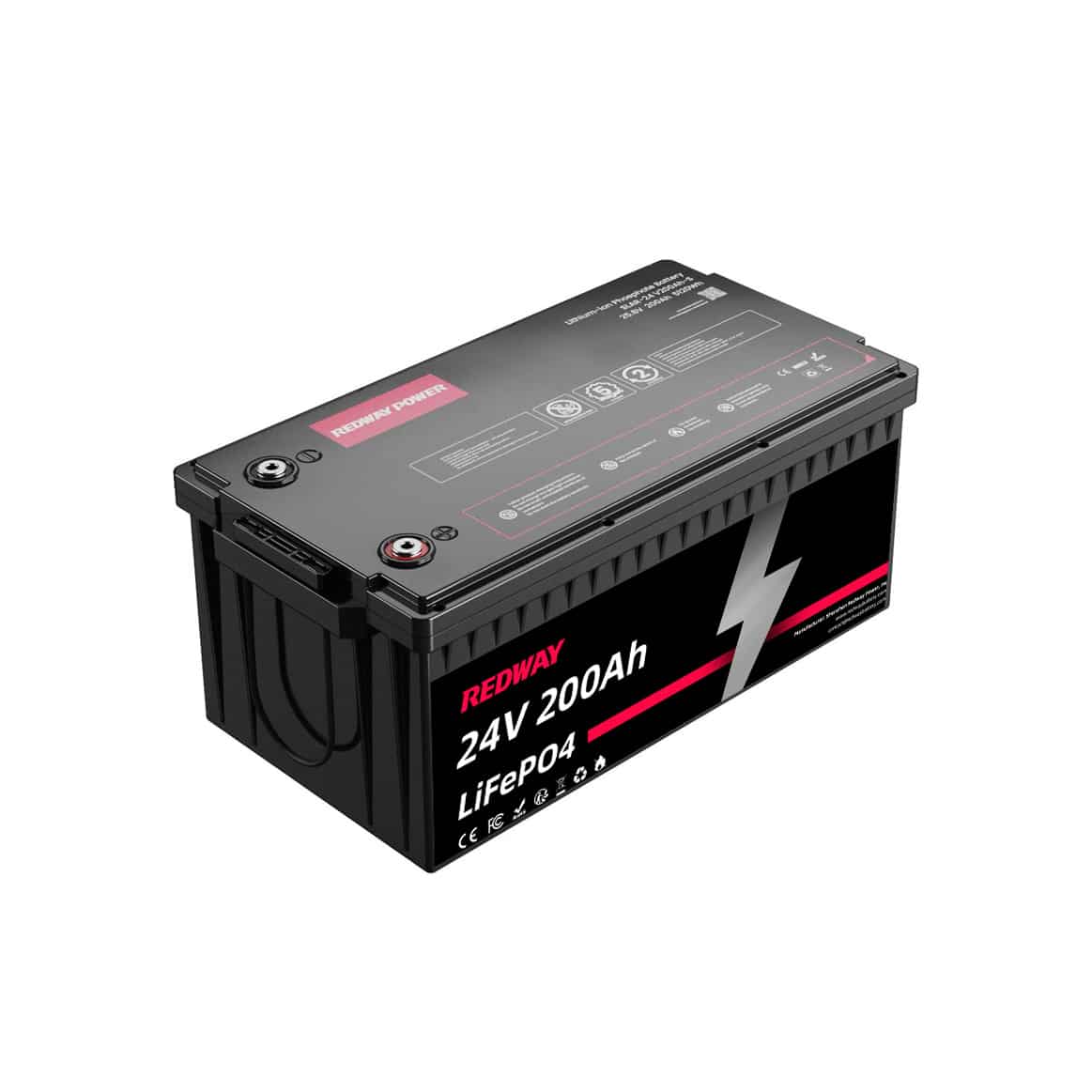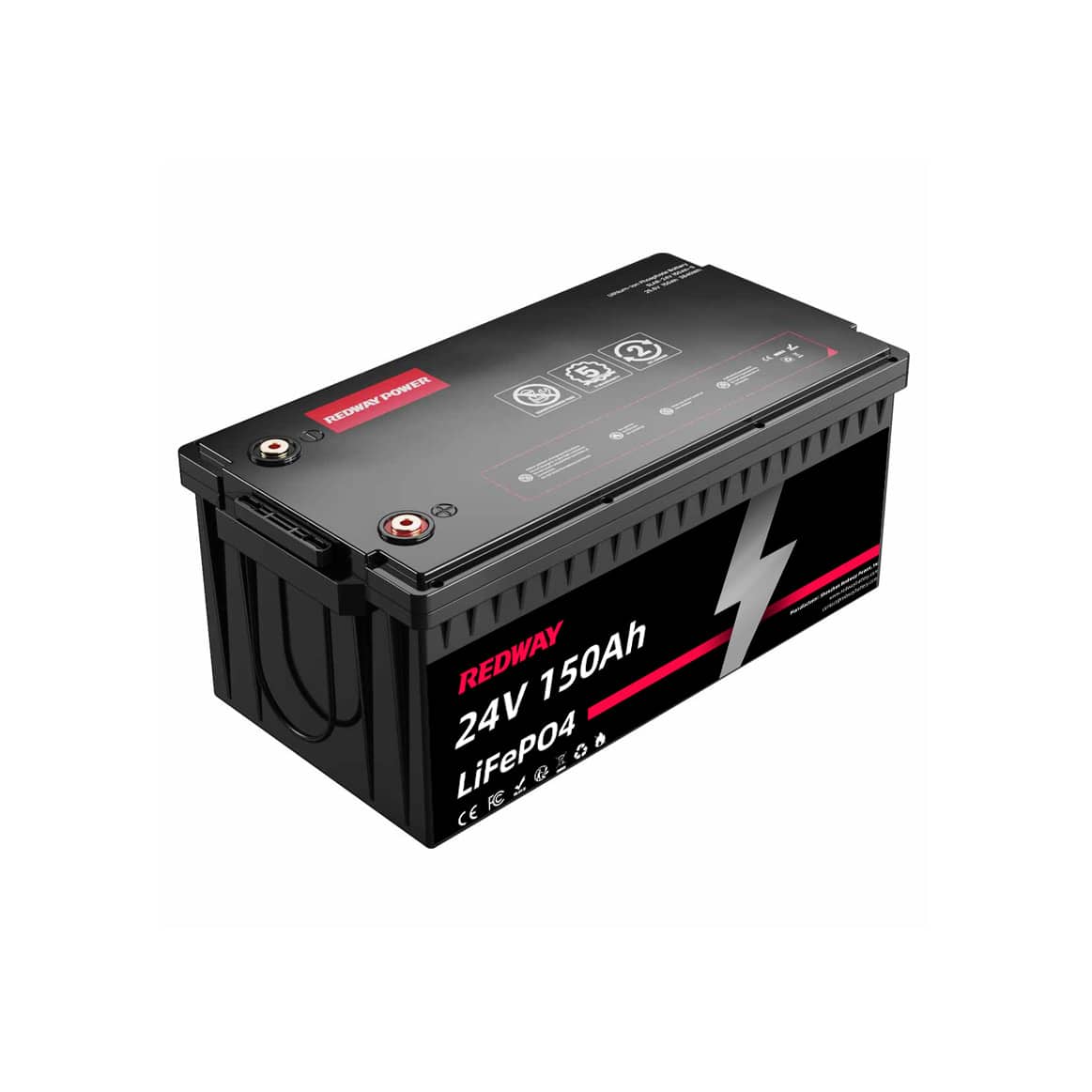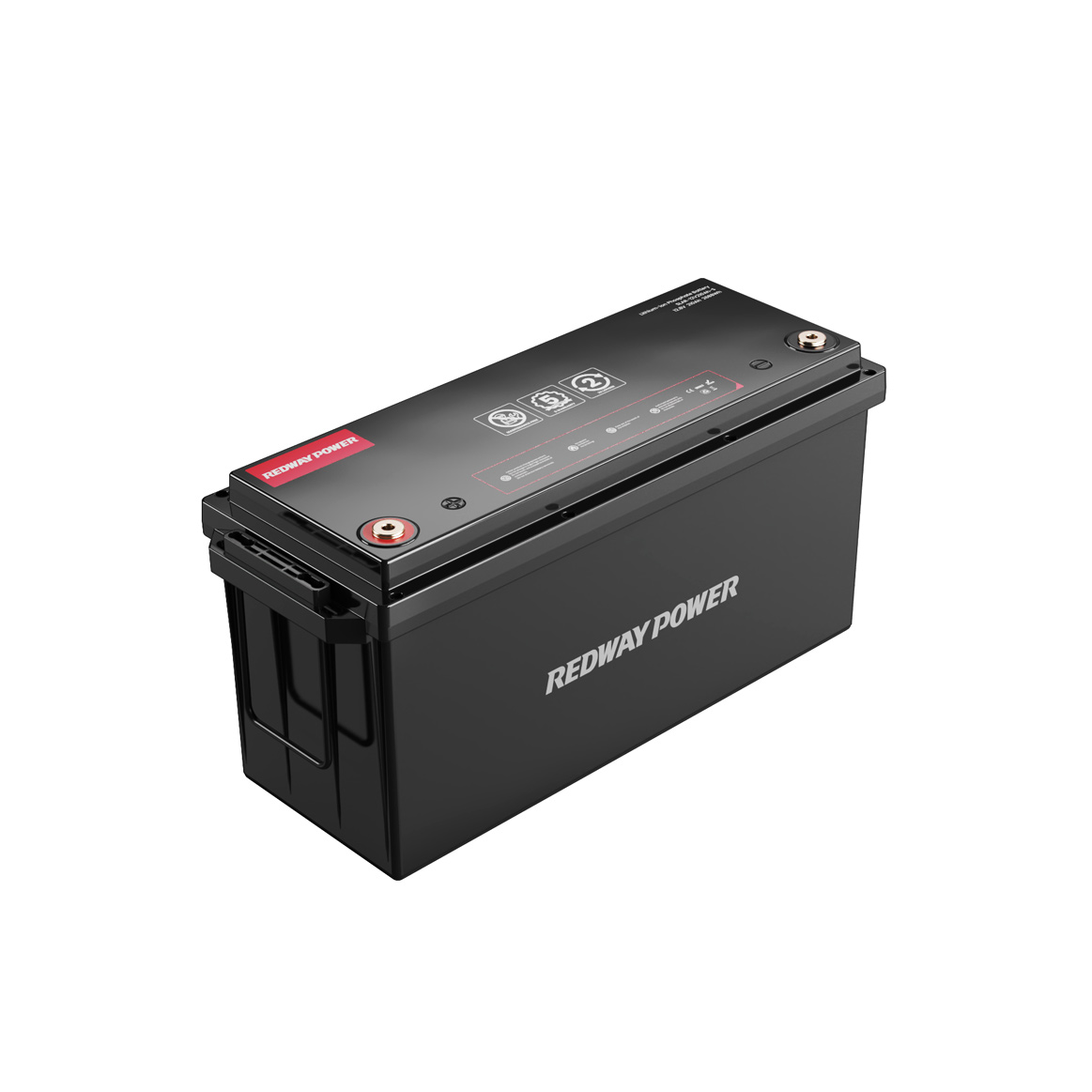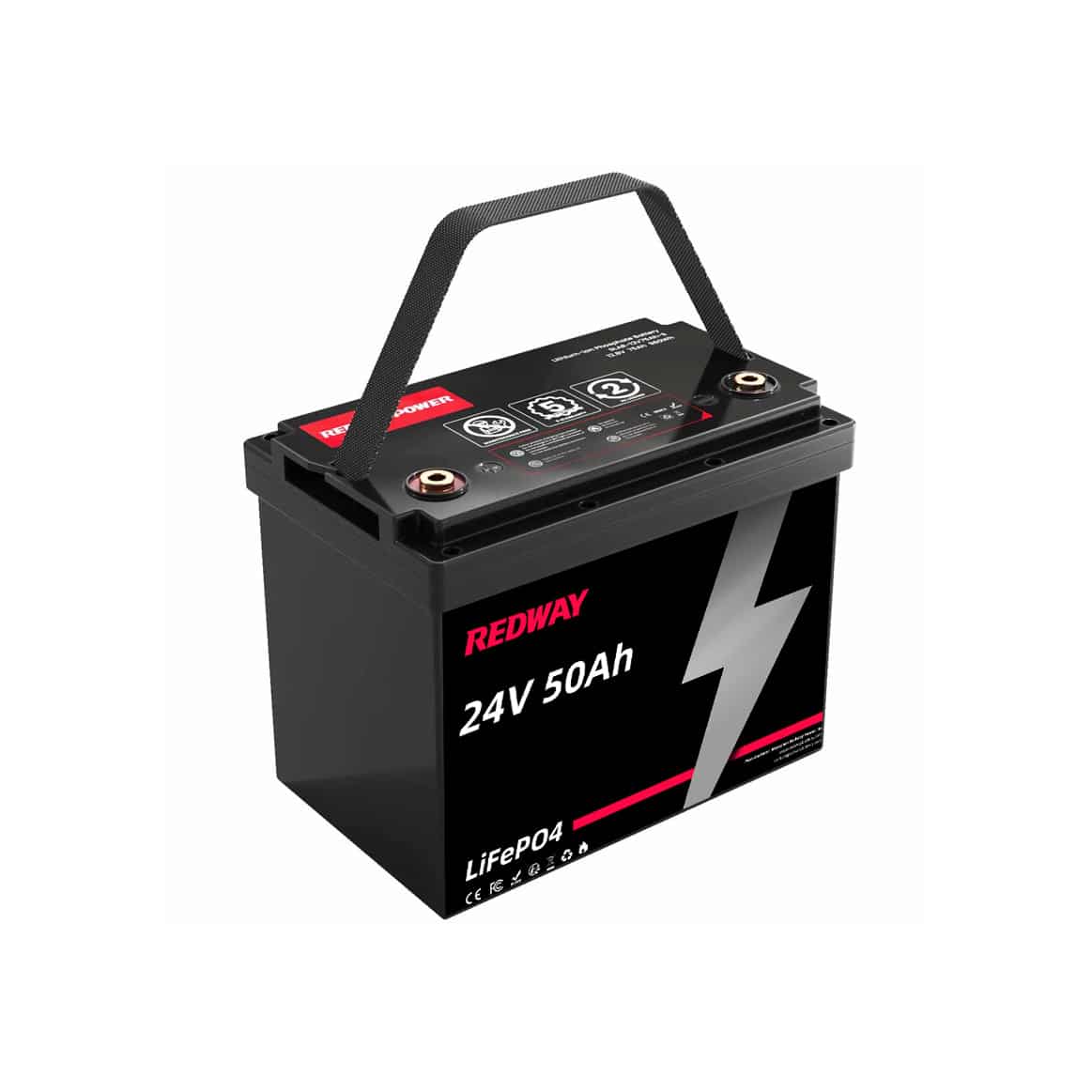Product Cateogries
24V LiFePO4 Batteries
Lithium-ion battery manufacturer Redway offer OEM 24V Lithium Iron Phosphate Batteries that are half the weight, twice as powerful, and have a lifespan 5X longer than traditional batteries. These batteries are ideal for applications like RVs, sightseeing carts, marine vehicles, scooters, tricycles, emergency lighting, and security systems. Specializing in custom lithium batteries for OEMs, Redway ensures deep cycle reliability, safety, long life, and optimal performance at both high and low temperatures.
All Redway Products Come with
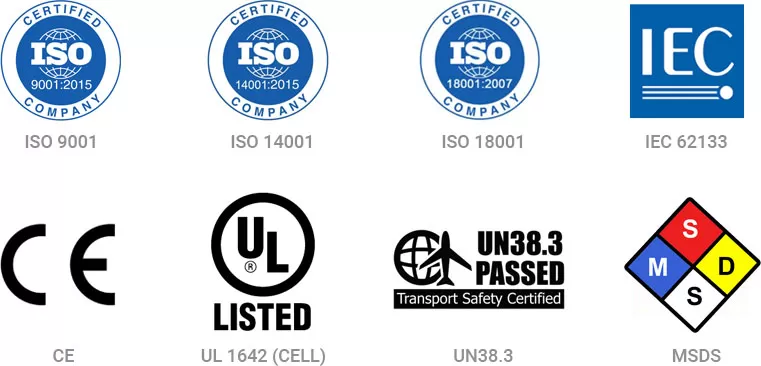
DIDN’ T FIND WHAT YOU WERE LOOKING FOR?
CUSTOM 24V BATTERY SOLUTIONS
As a leading 24V LiFePO4 Batteries Manufacturer, Redway offers a varied range of battery options for diverse applications. Our expert engineers stand ready to help you design, develop, test, and manufacture custom 24V battery solutions tailored to your unique needs. Contact us today to explore our extensive battery offerings and discover how we can craft an OEM 24V LiFePO4 battery specifically for you. Also, be sure to check out our LiFePO4 Golf Cart Batteries, Rack-Mounted Battery Modules, and LiFePO4 RV Batteries among others.
DEDICATED FACTORY SUPPORT
Redway Battery, located in China, is a renowned lithium-ion battery manufacturer and supplier, specializing in OEM/ODM solutions that cater to potential clients and customers. What sets us apart is our unparalleled dedicated factory support, backed by a team of expert engineers in our advanced facilities. This enables us to produce high-quality, innovative products.
Our prompt factory support emphasizes personalized service from design through to delivery, offering both flexible pricing and dependable products to meet OEM/ODM requirements.
LEARN BATTERY KNOWLEDGE
Our team of battery experts at Redway Battery is dedicated to sharing comprehensive knowledge about new energy technologies. Passionate about customizing batteries for a diverse range of electronic devices, we offer tailored and specialized battery solutions. We take pride in delivering the most up-to-date and professional information on batteries. By staying connected with us, you can access the latest practical insights and information on battery technologies and their applications. Unlock valuable knowledge and resources as you explore the world of batteries with us. Dive deeper into Battery Knowledge through these sections: Top 10 Posts, Redway News, Industrial News and Must-know Knowledge.
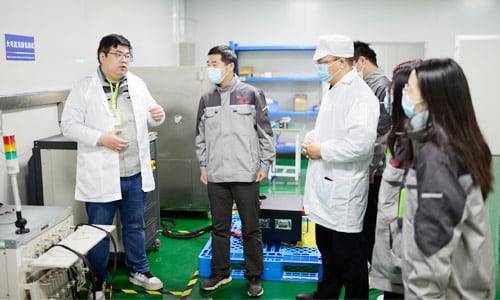
DOWNLOAD REDWAY PRODUCT BROCHURE AND SPEC
REDWAY PROMISE

QUALITY
6000 TIMES CYCLES
5 YEARS WARRANTY
10 YEARS DESIGN LIFE
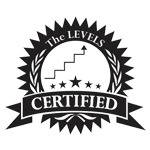
CERTIFICATION
ISO9001,ISO14001, OHSAS18001, CE, CB, UL, KC, FCC, BIS, IEC62133.

SERVICES
EXW, FOB, DAP, DDP OPTIONAL T/T, L/C OPTIONAL
Related Knowledge
Advantages and Comparisons
What are the advantages of 24V LiFePO4 over lead-acid batteries?
24V LiFePO4 batteries provide longer lifespans, often exceeding 4,000 cycles, compared to 500-1,000 cycles for lead-acid. They are lighter, have higher energy density, faster charging capabilities, and enhanced safety features. Additionally, they allow deeper discharges without damage.What is the lifespan of a 24V LiFePO4 battery?
A 24V LiFePO4 battery typically lasts over 4,000 charge cycles, translating to approximately 10 years or more with proper care and maintenance. This longevity significantly surpasses that of traditional lead-acid batteries.How does energy density compare between 24V LiFePO4 and lead-acid?
24V LiFePO4 batteries have a higher energy density than lead-acid batteries, allowing them to store more energy in a smaller and lighter package. This makes them more efficient for various applications.What are the environmental benefits of using 24V LiFePO4 batteries?
LiFePO4 batteries are more environmentally friendly as they do not contain toxic heavy metals found in lead-acid batteries. They are also recyclable, reducing waste and environmental impact.What applications benefit most from 24V LiFePO4 battery use?
Applications that benefit from 24V LiFePO4 batteries include renewable energy systems (like solar), electric vehicles, marine applications, and backup power systems. Their efficiency and longevity make them ideal for these uses.
Performance and Management
How do temperature extremes affect 24V LiFePO4 battery performance?
Temperature extremes can impact performance; high temperatures may cause degradation while low temperatures can reduce capacity. Maintaining an optimal temperature range enhances battery efficiency and lifespan.What charging practices should I follow for 24V LiFePO4 batteries?
Use a charger specifically designed for LiFePO4 batteries to avoid overcharging. Charge at recommended voltages and currents, and avoid discharging below 20% capacity to maximize lifespan.How can I maintain my 24V LiFePO4 battery effectively?
Regularly check voltage levels, clean terminals, and ensure proper charging practices. Store the battery in a cool, dry place and avoid extreme temperatures to prolong its life.What impact do discharge rates have on 24V LiFePO4 performance?
Higher discharge rates can affect performance by generating heat and potentially reducing cycle life. It’s advisable to operate within recommended discharge limits to maintain optimal performance.How does self-discharge rate compare with other battery types?
LiFePO4 batteries have a low self-discharge rate compared to lead-acid batteries. This means they retain their charge longer when not in use, making them more reliable for intermittent applications.
Installation and Safety
How can I safely install a 24V LiFePO4 battery system?
To safely install a 24V LiFePO4 battery system, ensure proper ventilation, use appropriate wiring and connectors, and follow manufacturer guidelines. Install a compatible Battery Management System (BMS) to monitor performance. Keep the installation area dry and secure to prevent damage and ensure safety.What are common applications for 24V LiFePO4 batteries?
Common applications for 24V LiFePO4 batteries include solar energy storage, electric vehicles, marine systems, recreational vehicles (RVs), and industrial equipment. Their lightweight design and long lifespan make them ideal for these uses.What safety features should I seek in a 24V LiFePO4 battery?
Look for features like built-in thermal management, overcharge protection, short-circuit protection, and a reliable Battery Management System (BMS). Additionally, choose batteries with certifications that ensure compliance with safety standards.How do I integrate 24V LiFePO4 batteries into existing systems?
To integrate 24V LiFePO4 batteries, verify compatibility with existing chargers and inverters. Connect the batteries in parallel or series as needed, ensuring correct voltage levels. Use a BMS to manage charging and discharging effectively.How can I troubleshoot installation issues with a 24V LiFePO4 battery?
If you encounter issues during installation, check all connections for tightness and correct polarity. Ensure the BMS is functioning properly and verify that the charger is compatible. Consult the user manual for specific troubleshooting steps.
Cost Considerations
What are the cost implications of using 24V LiFePO4 batteries?
While 24V LiFePO4 batteries have a higher upfront cost compared to lead-acid batteries, their longevity and low maintenance needs can lead to lower total ownership costs over time. Consider both initial investment and long-term savings.How does total ownership cost compare to lead-acid batteries?
Total ownership costs for 24V LiFePO4 batteries are generally lower than for lead-acid due to their longer lifespan (over 2,000 cycles), reduced maintenance requirements, and higher efficiency. This results in fewer replacements and lower overall expenses.What factors influence the price of 24V LiFePO4 batteries?
Factors influencing the price include battery capacity (amp-hours), brand reputation, manufacturing quality, and additional features like built-in BMS or safety certifications. Market demand and technological advancements also play a role in pricing.Are there financing options for purchasing 24V LiFePO4 battery systems?
Yes, many retailers offer financing options such as installment plans or credit financing for purchasing 24V LiFePO4 battery systems. Additionally, some energy companies provide incentives or rebates for renewable energy storage solutions.How can I calculate ROI when switching to 24V LiFePO4 batteries?
To calculate ROI, compare the total costs of ownership (purchase price, maintenance, replacement) of both battery types over their respective lifespans. Factor in savings from reduced energy costs and increased efficiency to determine financial benefits over time.
More
- Why Choose a 24V LifePO4 Battery?
Upgrade to a 24V LifePO4 battery for reliable and long-lasting power. Ideal for electric bikes, scooters, solar panels, and more, a 24V LifePO4 battery offers numerous advantages. With high energy density, it can store more energy in a small space. Its long cycle life ensures durability and cost-effectiveness. Plus, it’s safe, environmentally friendly, and can operate in extreme temperatures. Make the switch to a 24V LifePO4 battery and enjoy the benefits of a reliable power source.
- What is a 24V LifePO4 Battery Charger?
A 24V LifePO4 battery charger is a specialized device designed to charge 24V LifePO4 batteries effectively. With its dual-stage charge profile and integrated cooling fan, it ensures efficient and safe charging. These chargers protect against overcharging, overvoltage, and short circuits, ensuring the health and longevity of your 24V LifePO4 battery. Invest in a reliable 24V LifePO4 battery charger to maximize the performance and lifespan of your battery.
- How to Use a 24V 200AH LifePO4 Battery
Using a 24V 200AH LifePO4 battery is easy and efficient. Start by charging the battery with a compatible charger. Once fully charged, connect the battery to your device or system, ensuring proper polarity. Power on the device and enjoy reliable and long-lasting power. Remember to maintain and monitor the battery’s charge level for optimal performance.
- What is the maximum voltage for 24V LiFePO4?
A 24V LiFePO4 battery has a maximum voltage of around 29.2 volts when fully charged. The voltage levels may vary based on factors such as temperature and battery age. It is crucial to follow the manufacturer’s guidelines for charging and discharging to ensure optimal performance and maintain the battery’s maximum voltage. LiFePO4 batteries are known for their high energy density, long cycle life, and improved safety features, making them a reliable choice for various applications.
- How do you charge a 24V lithium battery?
Charging a 24V lithium battery is a crucial aspect of maintaining its performance and longevity. Whether you are using a dedicated battery charger, a solar panel setup, or a generator, it is essential to follow the manufacturer’s guidelines for voltage, current, and temperature. Proper maintenance, such as avoiding overcharging or undercharging, monitoring voltage levels, and storing the battery correctly, contributes to its optimal performance. Explore comprehensive guides available online for detailed information on factors affecting charging efficiency, different charging methods, and best practices to ensure safe and efficient charging of your 24V lithium battery.

